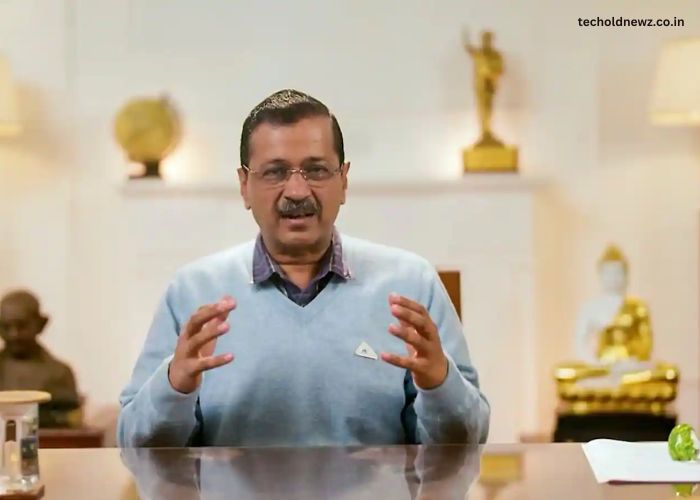Arvind Kejriwal, the Chief Minister of Delhi and leader of the Aam Aadmi Party (AAP), has been a prominent figure in Indian politics. His journey from an anti-corruption activist to a political leader has been marked by significant events and controversies. In recent times, several noteworthy incidents have brought him into the national spotlight.
Key Points:
- Arrest in Liquor Policy Case: In March 2024, Kejriwal was arrested by the Enforcement Directorate (ED) in connection with the Delhi liquor policy case.
- Interim Bail and Subsequent Custody: The Supreme Court granted him interim bail in May 2024, but he returned to judicial custody in June after the bail period ended.
- Recent Political Setbacks: In February 2025, eight AAP legislators resigned and joined the Bharatiya Janata Party (BJP), posing a significant challenge ahead of the Delhi Assembly elections.
What Led to Arvind Kejriwal’s Arrest in the Liquor Policy Case?
In March 2024, Arvind Kejriwal was arrested by the Enforcement Directorate (ED) concerning alleged irregularities in Delhi’s liquor policy. The ED accused him of involvement in a money laundering case linked to the policy. This arrest marked the first time a sitting Chief Minister in India was taken into custody. The arrest was based on allegations that the AAP government had granted liquor licenses in exchange for financial kickbacks, violating established norms and procedures. Kejriwal’s arrest led to widespread protests by AAP supporters, who claimed that the charges were politically motivated. The opposition, particularly the BJP, argued that the arrest was a necessary step to uphold the law and ensure accountability in governance.
How Did the Legal Proceedings Unfold Post-Arrest?
Following his arrest, Kejriwal faced a series of legal challenges. In May 2024, the Supreme Court granted him interim bail, allowing him temporary relief. However, after the bail period ended in June 2024, he surrendered and was sent back to judicial custody. During this period, multiple bail pleas were filed on his behalf, but many were denied by the courts. In July 2024, the Supreme Court granted him interim bail in the money laundering case, but he remained in custody due to other pending charges. It wasn’t until September 2024 that the Supreme Court granted him bail in the remaining cases, leading to his release after more than five months in prison. These legal proceedings highlighted the complexities of the Indian judicial system and the challenges faced by political figures embroiled in legal controversies.
What Impact Did the Resignation of Eight AAP MLAs Have on the Party?
In February 2025, just days before the Delhi Assembly elections, eight legislators from the Aam Aadmi Party (AAP) resigned and joined the Bharatiya Janata Party (BJP). This mass defection was a significant blow to AAP, as it not only reduced their strength in the assembly but also raised questions about internal party cohesion and leadership. The BJP capitalized on this development, portraying it as evidence of dissatisfaction within AAP ranks. For AAP, this event necessitated urgent damage control measures, including re-evaluating candidate selections and addressing internal grievances to prevent further defections. The incident underscored the volatile nature of political allegiances and the challenges parties face in maintaining unity, especially during critical electoral periods.
How Did Arvind Kejriwal Respond to the 2025 Union Budget?
In February 2025, following the presentation of the Union Budget, Arvind Kejriwal expressed his disappointment, particularly concerning tax policies. He advocated for halving the rates of Income Tax and Goods and Services Tax (GST), arguing that such a move would provide relief to the common man and stimulate economic growth. Kejriwal also criticized the government for allocating substantial funds towards loan waivers for billionaires, suggesting that these resources could be better utilized for public welfare. His statements resonated with many who felt burdened by high taxes and perceived economic inequalities. However, critics argued that reducing tax rates could lead to decreased government revenue, potentially affecting public services and infrastructure projects. This debate highlighted the broader discussion on fiscal policies and their impact on different segments of society.
What Are the Implications of Kejriwal’s Legal Troubles on His Political Career?
Arvind Kejriwal’s legal challenges have had significant implications for his political trajectory. His arrest and prolonged judicial custody not only affected his personal reputation but also posed challenges for the Aam Aadmi Party (AAP) in terms of leadership and public perception. While his supporters viewed the legal actions as politically motivated attempts to undermine his leadership, opponents saw them as necessary measures to uphold the rule of law. The legal battles also diverted attention from AAP’s policy initiatives, forcing the party to focus on defense rather than governance. However, Kejriwal’s eventual release and continued advocacy on issues like tax reforms indicate his resilience and determination to remain a key player in Indian politics. The long-term impact of these events will depend on public perception, legal outcomes, and the party’s ability to navigate the challenges ahead.
Conclusion
Arvind Kejriwal’s political journey has been marked by significant highs and lows. From his arrest in the liquor policy case to internal party challenges and his critiques of national fiscal policies, Kejriwal continues to be a central figure in Indian politics. As events unfold, his actions and the responses they elicit will play a crucial role in shaping the future of the Aam Aadmi Party and its position in the broader political landscape.
Note: The political scenario is dynamic, and developments can change rapidly. It’s essential to stay updated with reliable news sources for the latest information.
Reminder: *Always consider multiple perspectives when analyzing political events to gain.


